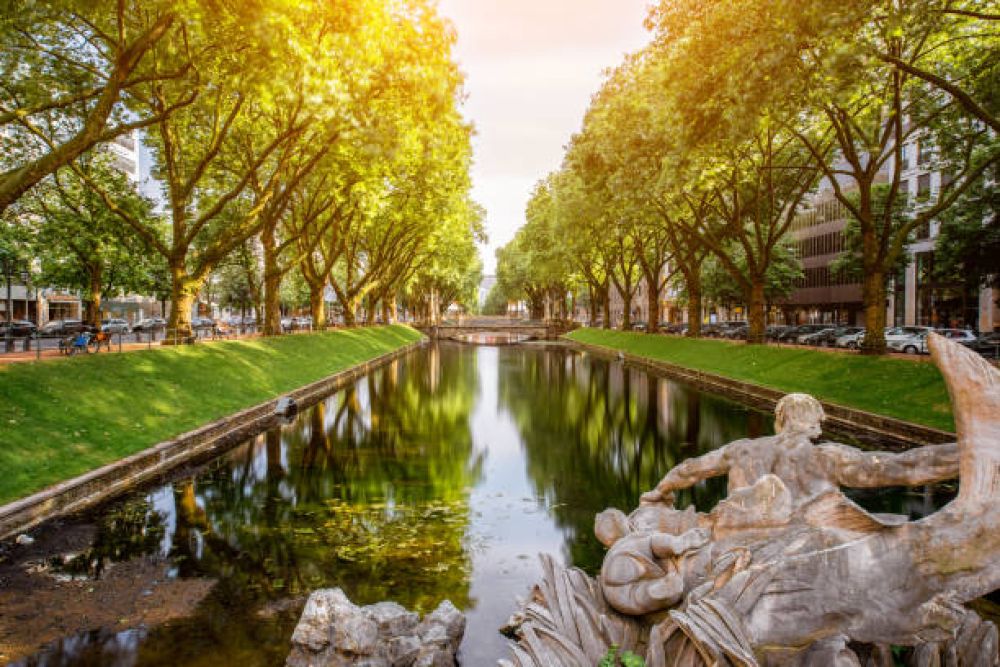

Königsallee, often referred to as "Kö" by locals, is Düsseldorf’s most famous fashion boulevard. It’s known for its exclusive boutiques, luxury retail stores, and tranquil city canal lined with chestnut trees. The history of tourism on Königsallee dates back to the 19th century.
The boulevard was originally named Kastanienallee (Chestnut Avenue), due to the many chestnut trees that line the canal. However, its name was changed to Königsallee as a conciliatory gesture to King Friedrich Wilhelm IV of Prussia after an incident in 1848 where horse manure was thrown at him. Over time, the beauty of the boulevard attracted visitors from across Germany and Europe.
During the 20th century, especially after World War II, Düsseldorf underwent a period of reconstruction and development. Königsallee quickly regained its reputation as a hub for upscale shopping and leisure. The boulevard became synonymous with wealth and fashion, drawing tourists interested in high-end shopping experiences and beautiful city walks along the canal. Hotels, restaurants, and cafes along the "Kö" have also contributed to its status as a tourist destination.
In recent years, the city has made efforts to further enhance Königsallee’s appeal. Renovations and modernizations of the boulevard have maintained its historical charm while integrating contemporary luxuries. These improvements have made it a key site for international tourists seeking luxury goods and the latest in fashion trends.
Eco-friendly tourism has become a recent trend in Düsseldorf, with tourists seeking sustainable shopping experiences. Königsallee aligns with this trend by offering a selection of eco-friendly and ethical fashion options. Innovative events like “Green Fashion Week” have also encouraged sustainable practices in the area.
Additionally, experiential luxury shopping is a growing trend. Consumers are not only interested in purchasing luxury items but also in enjoying unique experiences. The boulevard hosts fashion shows, pop-up events, and cultural festivals, adding diverse experiences for visitors beyond traditional shopping.
Moreover, the use of digital technology has shaped the modern tourist experience on Königsallee. Many stores have adopted digital marketing strategies to attract international customers, providing a seamless shopping experience for both on-site and online visitors.
To wrap up, Königsallee has a rich history steeped in luxury and exclusivity. Over the years, it has successfully adapted to new trends and remains a key attraction for tourists looking for a high-end shopping experience in a historical and picturesque urban setting.